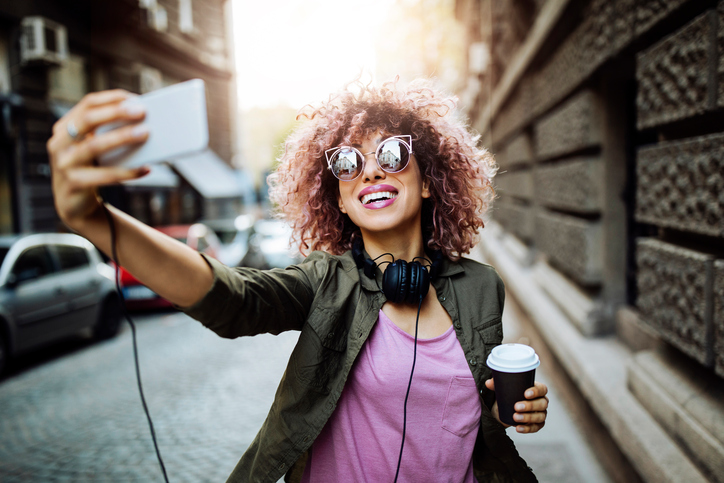Social media feeds are elaborate, creative works of deception. We carefully filter through our own thoughts when we tweet, and we apply filters to tint the reality of our photos. But would you pay money to raise this level of deception even further?
According to the website Lifefaker.com, life isn’t perfect, but your profile should be. The site appears to offer photos that users can pass off as their own, to beautify their lifestyles and elicit the envy of their peers.
The “Look What I Had for Lunch” package showcases perfectly photographed avocado toasts, cocktails, and aesthetically appealing, presumably organic food. Beyond the fancy plating, the site boasts other media packages with exotic vacations, thriving relationships, beach bods, luxurious layouts, and humble brags.
However, Lifefaker.com, which describes itself as “the world’s first online life faking service,” is, appropriately enough, completely fake. It’s all a satire, designed to draw attention to social media’s negative impact on mental health.
Of course, this didn’t stop people from sharing the link online, thinking that it’s real, and bemoaning the state of the world. It only takes a little scrutiny and a few clicks to become aware of the socially-conscious joke, but where’s the instant gratification and self-righteous payoff in that? People spread the link like wildfire, while decrying the rise of superficiality over substance.
And that was the intention behind the campaign. Sanctus, a London-based startup offering mental health workshops and coaching, explains:
“The purpose of the Lifefaker campaign isn’t to shame anybody for their behavior or to blame social media entirely, it’s to highlight social media’s powerful role within mental health and perhaps shed a light on our own unhealthy behaviors in our relationship with social media.”
At first glance, the website commits itself to the illusion, complete with a FAQ that breaks down the cost, noting that $1 a month is a fraction of the cost of real life. The site explains, “The cost covers a licensing fee we pay to our partner influencers who are guaranteed to be cooler, hotter, and happier than you.” The serious part of the website notes that 62 percent of social media users feel inadequate when comparing their lives to the content posted by others.
Studies have found that increased social media usage among adolescents is associated with poorer sleep quality and self-esteem and higher levels of anxiety and depression. Other studies indicate that excessive social media usage has led to increased suicide rates and eating disorders among adolescents.
According to research published in Clinical Psychological Science, “Adolescents who spent more time on new media (including social media and electronic devices) were more likely to report mental health issues than adolescents who spent more time on non-screen activities.
“Fake news” has become a dirty word and rightly so, but if Lifefaker.com prompts enough social shares and click-through to motivate societal reflection, it could be a force for good. It’s also potentially a viable marketing model that could be replicated by other social enterprises that are eager to make a point. The public conversation around this problem might also benefit from the direct involvement of brands and marketers.
Do brands have an ethical responsibility to ensure they are not setting impossibly high standards with imagery that they project on their social channels? No one buys a product because they think it will make their life more mediocre. There is an inherent tension between successful marketing and an awareness of social health. But acknowledging the full spectrum of possible repercussions, brands might develop a more evolved view and show a little discretion.
“It’s difficult for brands to draw a line in the sand about what lifestyle imagery they project,” Curtis Sparrer, principal, Bospar PR, told DMN. “The reason why — fantasy sells. We’ve seen that since the first issue of Vogue. But we are also running into an ‘ick factor’ when it comes to certain practices we can easily identify as abhorrent. France, for example, has banned super skinny models. So, when it comes to social media, I think we will reach a similar equilibrium of brands wanting to sell the fantasy, but getting pushback when things go too far.”
“I would recommend they have an advisory board of respected experts who could help provide a ‘judge’s ruling’ on critical issues,” he continued. “We all know how workplaces can engender ‘group think’ that can green-light the dumbest ideas. This is where having an outside perspective could save a brand’s reputation, and in some extreme cases, a person’s life.”








